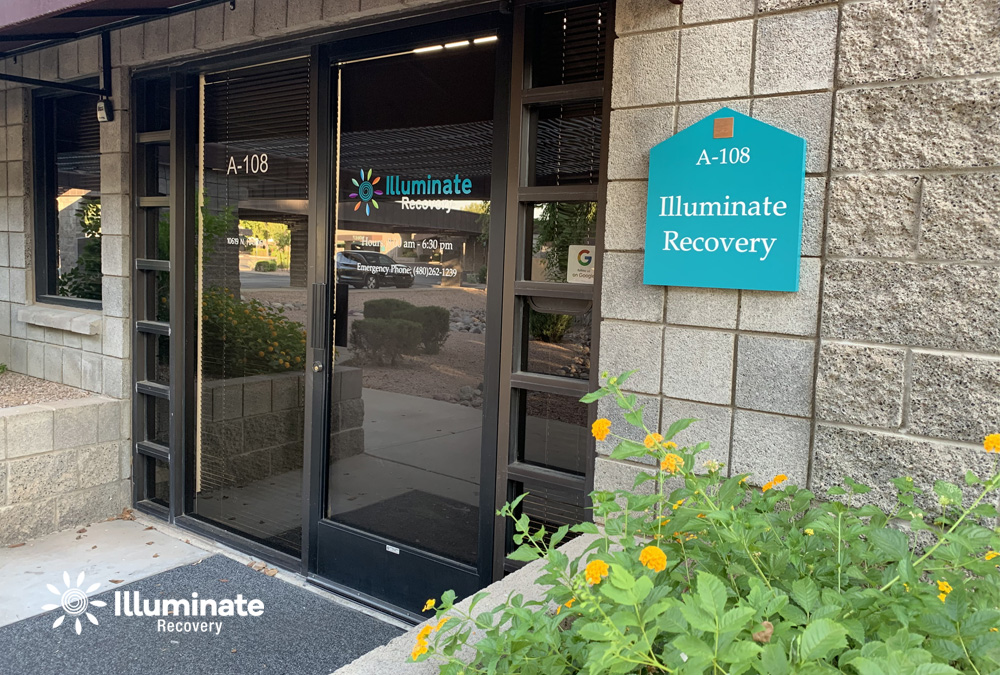 Photo from Getty Images
Photo from Getty Images
Originally Posted On: https://illuminaterecovery.com/blog/values-addiction-recovery/
In addiction recovery, values play a key role. Values are what drive our decision-making processes and help us make decisions that align with who we want to be. They tell us what is important and how we should behave in the world.
Unfortunately, when our values are overcome by the power of our addictive behaviors, the conflict can lead to relapse or worsen a constant struggle with sobriety. Here, we will explore why values matter in addiction recovery. Perhaps more importantly, we will supply examples of values that can encourage healthier living for those recovering from addiction.
What Are Values?
Values are a set of moral or ethical principles that guide our decisions and behaviors. They can be as broad as values like loyalty, honesty and “being the best person I can,” or a specific as the values that lead some people to adopt veganism. Values are personal, but they are not set in stone and can change over time. As we grow older—or as substance users evolve in recovery—values may shift based on what is most important at that moment in life.
Some people discover their most important values by exploring spiritual beliefs, while others identify them through deep introspection about what’s most important to them—many of us develop values from both sources. No matter how they are formed, our values are the standard by which we judge our actions. For example, we weigh whether a decision to drink alcohol or use illegal substances is consistent with what we believe to make an informed choice about that action.
Addiction Denial and Ambivalence
 Photo from Getty Images
Photo from Getty Images
For people struggling with addiction, values may be in conflict. Addictive behaviors can contradict values such as honesty and kindness, leading to denial that an addiction exists at all or ambivalence about the path of recovery. Here, we’ll examine both responses.
Addiction Denial
Addiction denial means that a substance user doesn’t believe there is a problem with their addiction. They may not admit to themselves that they have an addiction or refuse to identify addiction as a problem in their life. They may also believe that the values they’ve built from the past aren’t relevant to them anymore. Conversely, many believe they’re more important than values in recovery.
When it comes to addiction denial, values can be a powerful tool for recovery. When values are in alignment with addiction, the denial is much easier to see through. For people who psychologically think of themselves as kind and honest, it’s easier to recognize when they have been dishonest or unkind while sober than someone whose values don’t include those traits.
Ambivalence
Ambivalence is when someone recognizes an addiction, but believes they are unable to become fully committed to the process of getting sober. They may have values that contradict addiction recovery and are not sure which values should be prioritized during the process of getting sober. This can complicate the process of recovery because values are what guide decisions and behaviors—in this instance, values are in conflict. Ambivalence can dramatically slow the process of recovery and may even prevent some people from fully committing to values-aligned addiction recovery.
A person who wants to stay in recovery but keeps relapsing into the “wrong behavior” is suffering the challenges of ambivalence. They want to improve their life and receive the gift of top-tier treatment. Yet, somehow, relapse happens repeatedly. People experiencing ambivalence develop an internal struggle between what is good (recovery) and what feels good (acting out). The more they focus on the internal struggle, the less able they are to move up the ladder of recovery. Redirecting focus to a values-aligned recovery method can combat this common challenge.
Identifying Your Personal Values
 Photo from Getty Images
Photo from Getty Images
It can be helpful to do some values exploration and identify what values are important to you before you start or continue the recovery journey. This can be done via a value inventory, introspection about what’s most important to you, and talking with others who know you about what values they see in your life.
Some people may find it helpful to explore values before they embark on recovery because of how these values guide behaviors and decisions during the process. Values exploration helps clarify what matters most so people know which direction to head to create sustainable sobriety where healthy relationships thrive over addiction.
If you need help to identify your values, one way to explore is by answering the following questions:
- What makes me feel good inside (e.g., helping others)?
- What does it mean for my life when I’m happy? (Happiness leads to fulfillment in relationships.)
- How would my world change if I were more honest about how I really felt? (You should be able to say exactly what’s on your mind without attaching judgment or fear of consequences.)
- Why am I doing what I’m doing right now? (Values guide actions.)
- What would my life be like if I stopped acting on addictive impulses all the time and acted according to my most important values?
It’s important to explore which values are most important for you before you continue in recovery. This can help you identify any conflicting values that may lead to relapse or ambivalence about your path towards sobriety. In this way, values make it easier to make decisions based on healthy living.
Goals Vs. Values
“I want to be rich.”
“I want to be happy.”
Can you spot the difference? Certainly, they both express a goal. Yet, what is not quite so obvious is that these two statements are quite different in nature. In fact, it would be a mistake to make them more similar than they really are. One of these goals (being rich) can conflict with another highly desirable and seemingly compatible goal for many people (being happy). How is this possible?
Think about what each of these goals really means for a moment. Becoming rich means a lack of money problems, as well as security and freedom from financial worries. However, if you’re leading a miserable life, it truly does not matter how much money you have. Here is where we see a conflict between two “goals” at work. In the end, it’s your values that will determine which one wins out.
Goals and values can connect when they’re at the same level of importance to someone, but goals offer more flexibility than values because they represent an outcome rather than what is most important in life. For example, values can include things like honesty, kindness, or loyalty, while corresponding goals might be finishing school or getting sober within one year. To better understand the difference between goals and values in their simplest form, it may help to think of values as the guiding force in life and goals as specific, time-limited outcomes. Some people find it helpful to identify both values and personal goals, so they know where their priorities lie after addiction recovery begins.
Recovery Is Challenging—Values Can Help
 Photo from Getty Images
Photo from Getty Images
Pursuing recovery and staying sober is challenging. It’s easy to get distracted or discouraged by the voices of peers who encourage drinking alcohol and drug use, not to mention stressful life situations such as having children, caring for aging parents, career changes, or divorce. It’s also common to be exposed to temptations to drink and use drugs every day in the community, like invitations to go for drinks after work or watching television shows where people are taking part in addictive behaviors.
What helps to keep us on track in the face of all these obstacles is letting our values be a guide. We can use our values as a compass that points us in the direction we want our lives to go, and away from things we know are harmful to us. Too often, however, we are at cross-purposes with our goals for recovery when we get distracted by people or things that pull us away from our values.
Values are important because they connect us with others and guide us in making decisions about what’s right and wrong, as well as what is good and bad for us. When we operate according to our values, it helps us feel like part of an interconnected group, whether that is a family, a peer group, or society at large. When we operate in violation of our values, it hurts us by making us feel like we are isolated from the group.
We can only be connected to others when we are connected with ourselves; that is one reason beginning recovery is so important. If you’ve ever gone to a noisy bar, got drunk at a party, or used illegal drugs, you may have felt disconnected from yourself and others. When you are under the influence of drugs or alcohol, you can lose your ability to listen to your feelings and lose the instinct to do what’s best for yourself. The result is impulsive decisions that have a negative effect on you in the long run.
Value-Based Addiction Recovery
 Photo from Getty Images
Photo from Getty Images
Recovery values are, for many individuals struggling with addiction, the most important values they will ever identify. They represent what is most important in this moment and moving forward: honesty about addiction, kindness towards others who have addiction issues, and many other values that are necessary to rebuild and fulfill a life’s purpose. When our actions align with our values, we do better and feel better. This is especially true in addiction recovery because values supply a grounding force in the mind and heart. With that grounding force, those struggling with addiction can find the guidance and hope they need through the difficult journey of recovery.
Some examples of values that can encourage healthier living for those recovering from addiction include:
- Honesty with oneself and with others, to prioritize a value of truth.
- Kindness towards oneself and others as a value of compassion.
- Gratitude for all things, including the recovery process, as a value of thankfulness.
- Openness to the recovery process as a value of wisdom.
- Responsibility for one’s recovery efforts as a value of selflessness.
- Respect for self, family members, and friends as a value of love.
After prioritizing values in addiction recovery, it becomes clear which values are most important and meaningful to a person, as well as which values may be conflicting with one another. When values align during sobriety, it’s easier to make healthy decisions because values represent the most important aspects of recovery. When values don’t align during sobriety, they may still be the guiding force that helps a person make decisions about the future they want to live.
Our Values
At Illuminate Recovery, we have a clear, in-depth understanding of the disease of addiction.
Because of this, our organizational core values align with values that help with addiction recovery:
- Respect yourself, your potential, and the people around you. Be kind to yourself on this difficult journey and respect the efforts of those lending a helping hand in your recovery.
- Better understand how certain actions have affected others and use these emotions to accelerate a drive for recovery.
- Open your heart to others and allow them in. Show concern for the well-being of loved ones, and you will find yourself feeling better on this difficult journey.
- Stay in tune with the larger recovery community. Advice, support, and wisdom from others can always be beneficial as you traverse the path of addiction recovery.
- Stay on task and keep your goals at the forefront of your mind. Do not wait for tomorrow to begin moving forward with recovery work today.
- Accept that you have the power to solve your own problems of addiction most effectively. Take action, participate in self-help groups, and allow recovery to work.
- Make quality decisions and put forth the best efforts possible, as quality recovery work will lead to success.
Taking time every day to reflect on our values is a healthy exercise in in recovery. It helps keep you focused on the best direction for your life, which can be an important source of motivation and inspiration. Most people find that when they begin to act more in accordance with their values, their lives proceed more smoothly, and they experience a sense of satisfaction and fulfillment. It’s worth taking the time to learn more about your most deeply held values, so that they can guide you as you pursue recovery and make decisions about where you want your life to go.
Contact Illuminate Recovery for Care in Scottsdale, AZ
If you’ve begun exploring your personal values and want to learn more about how we can help support you on a value-based recovery journey, please contact us at Illuminate Recovery. A compassionate member of our staff is always on hand to help you discover the valuable opportunities at our treatment center here in Scottsdale, Arizona. We look forward to serving you on a better and brighter road to addiction recovery.
